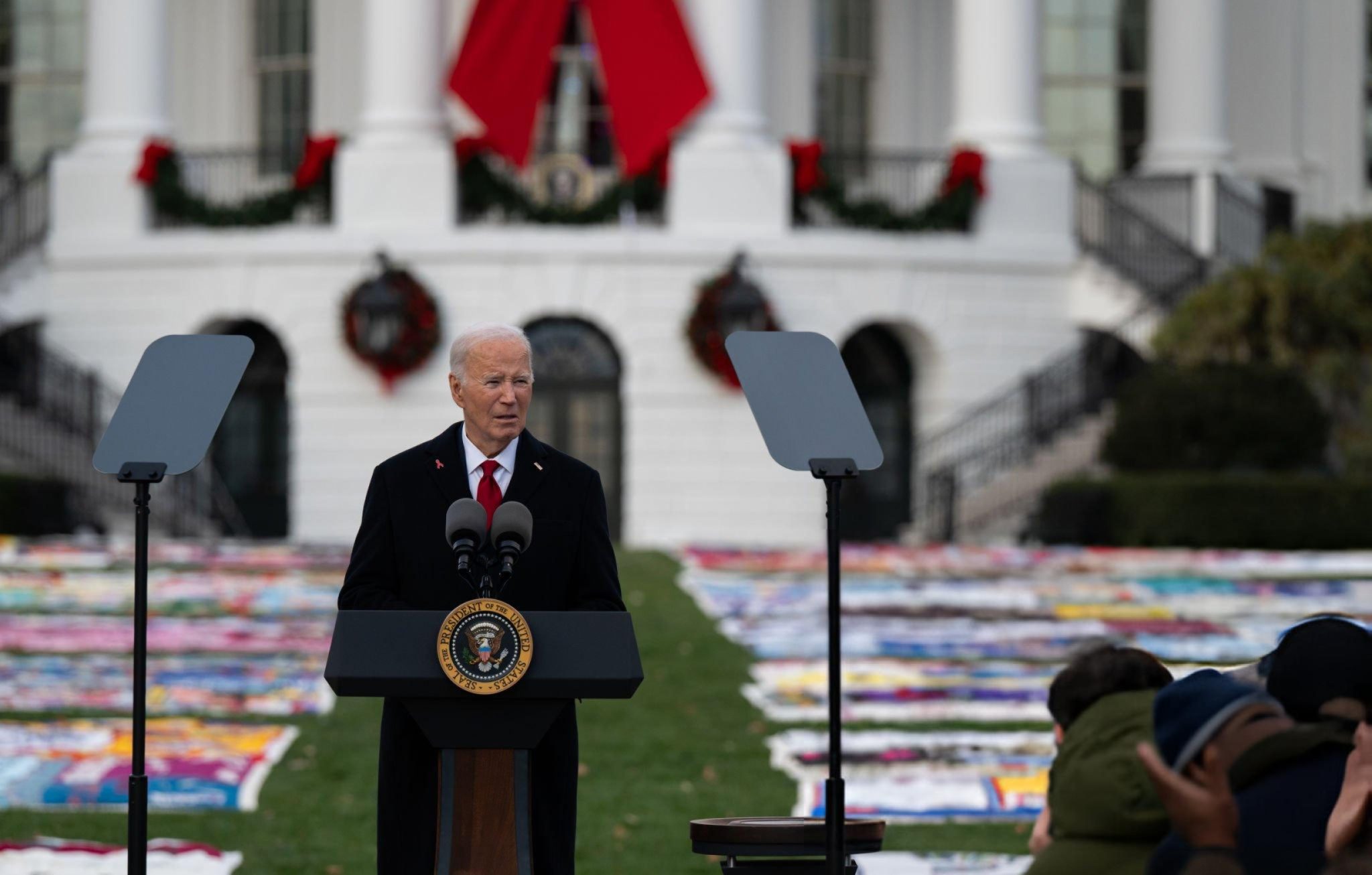President Joe Biden has arrived in Angola for his long-anticipated first visit to sub-Saharan Africa as president. Welcomed by enthusiastic crowds in Luanda on Monday, Biden’s three-day visit seeks to strengthen ties between the United States and Africa, with a focus on the transformative Lobito Corridor railway project. This ambitious US-led initiative is positioned as a countermeasure to China’s significant influence across the resource-rich continent.
Lobito corridor: A strategic move
Central to Biden’s visit is the Lobito Corridor project, a proposed upgrade to an 800-mile railway stretching from Zambia and Congo’s mineral-rich regions to Angola’s port of Lobito. The project aims to enhance the export of critical minerals like cobalt and copper, essential for clean energy technologies, electric vehicle batteries, and electronic devices.
This initiative, backed by £3 billion in US investment, also involves financial support from the European Union, the G7, African banks, and private entities. By focusing on infrastructure development, the project aligns with the US’s broader strategy to offer alternatives to China’s Belt and Road Initiative.
The Biden administration has described the corridor as a flagship effort under the G7’s Partnership for Global Infrastructure and Investment, showcasing the US’s renewed commitment to Africa.
A packed schedule in Angola
While in Angola, Biden is scheduled to meet President João Lourenço in Luanda to discuss bilateral cooperation on health, agribusiness, and security. In addition, he will visit the National Slavery Museum, a poignant site that reflects Angola’s historical significance in the transatlantic slave trade.
Biden will also travel to Lobito to review the railway project and announce new developments related to regional collaboration. White House officials have emphasised that the Lobito Corridor is not just an economic venture but also a symbol of deeper engagement with Africa.
Building on the US-Africa Summit
Biden’s visit comes nearly two years after the US-Africa Summit in December 2022, where he reaffirmed his commitment to African partnerships. Although originally planned for last year, the trip was postponed twice, most recently in October due to Hurricane Milton.
The delay has led to perceptions among some African leaders that their continent remains a lower priority for Washington. The last US presidential visit to sub-Saharan Africa was by Barack Obama in 2015, highlighting a significant gap in direct presidential engagement with the region.
Competing with China
China’s dominance in Africa, particularly in mining operations in Zambia and Congo, underscores the geopolitical stakes of Biden’s visit. Congo alone accounts for over 70% of the world’s cobalt supply, much of which is exported to China.
The Lobito Corridor seeks to disrupt this dynamic by creating a westward export route for Africa’s critical minerals, reducing reliance on Chinese-controlled supply chains. Experts believe this strategy is likely to continue under the incoming Trump administration, as bipartisan support exists for countering China’s influence globally.
Looking beyond Biden’s term
The success of the Lobito project, which is expected to extend eventually to Tanzania on Africa’s east coast, hinges on sustained investment and commitment beyond Biden’s presidency. With President-elect Donald Trump preparing to take office on 20 January, there is speculation about how the next administration will approach US-Africa relations.
Mvemba Dizolele of the Center for Strategic and International Studies noted that African leaders are already looking to Trump’s policies. However, the bipartisan nature of initiatives like the Lobito Corridor suggests they may endure political transitions.
National Security Council spokesman John Kirby expressed optimism, stating, “We hope the incoming administration sees the value of Lobito, but we remain focused on delivering results during our remaining 50 days in office.”
Africa’s growing importance
The Lobito Corridor represents a small but significant step in reshaping US engagement with Africa. Analysts, including Michelle Gavin, a former Africa adviser to Obama, argue that the US has historically undervalued the continent’s strategic importance.
“This is a good idea and a meaningful start,” Gavin remarked. “But it’s just one project. For the US to truly ‘show up’ in Africa, it needs sustained, comprehensive engagement that goes beyond symbolic gestures.”
President Biden’s visit to Angola marks a historic effort to deepen US-Africa relations through strategic infrastructure development. While the Lobito Corridor exemplifies a bold move to counter China’s dominance, it also highlights the challenges of maintaining continuity and building lasting partnerships in Africa.
As Biden’s term nears its end, his actions lay the groundwork for a more robust US presence on the continent, though the true test of these efforts will lie in their longevity under future administrations.







